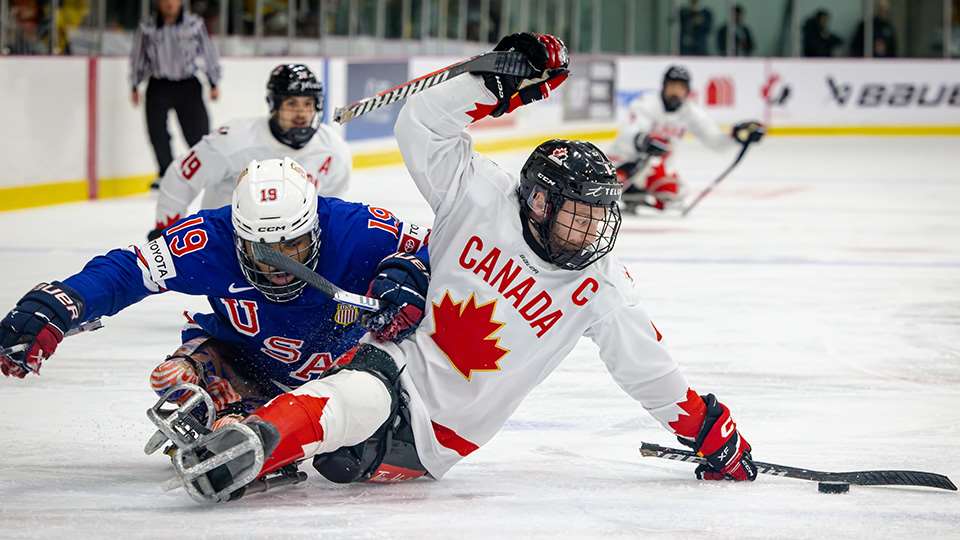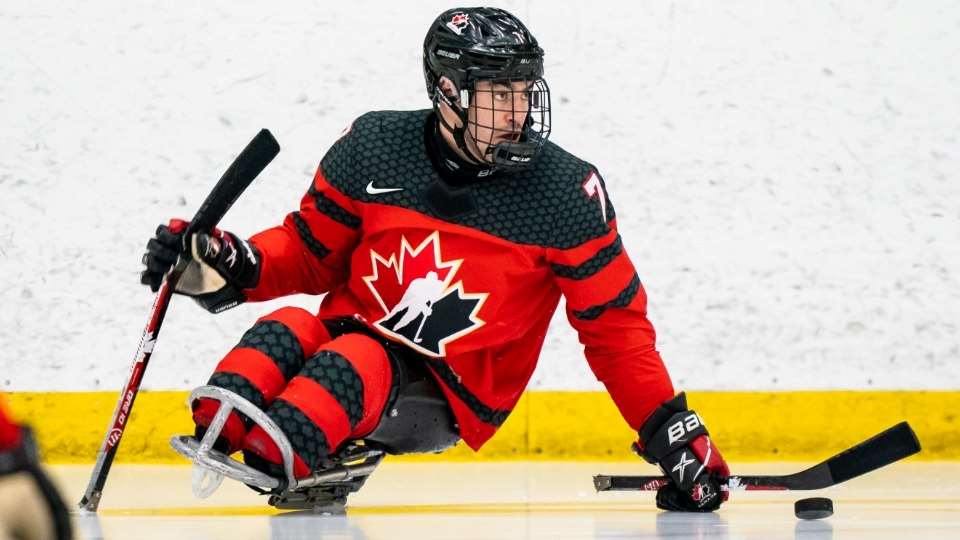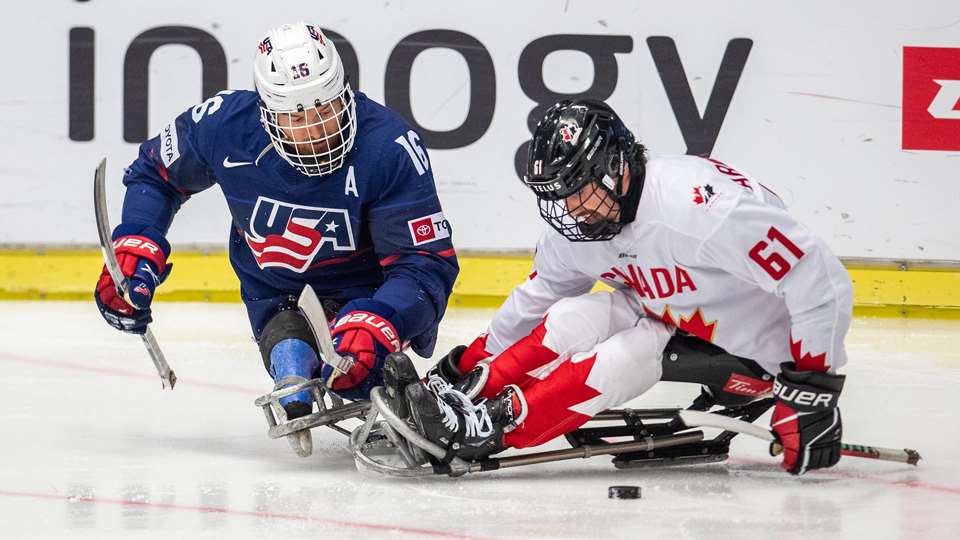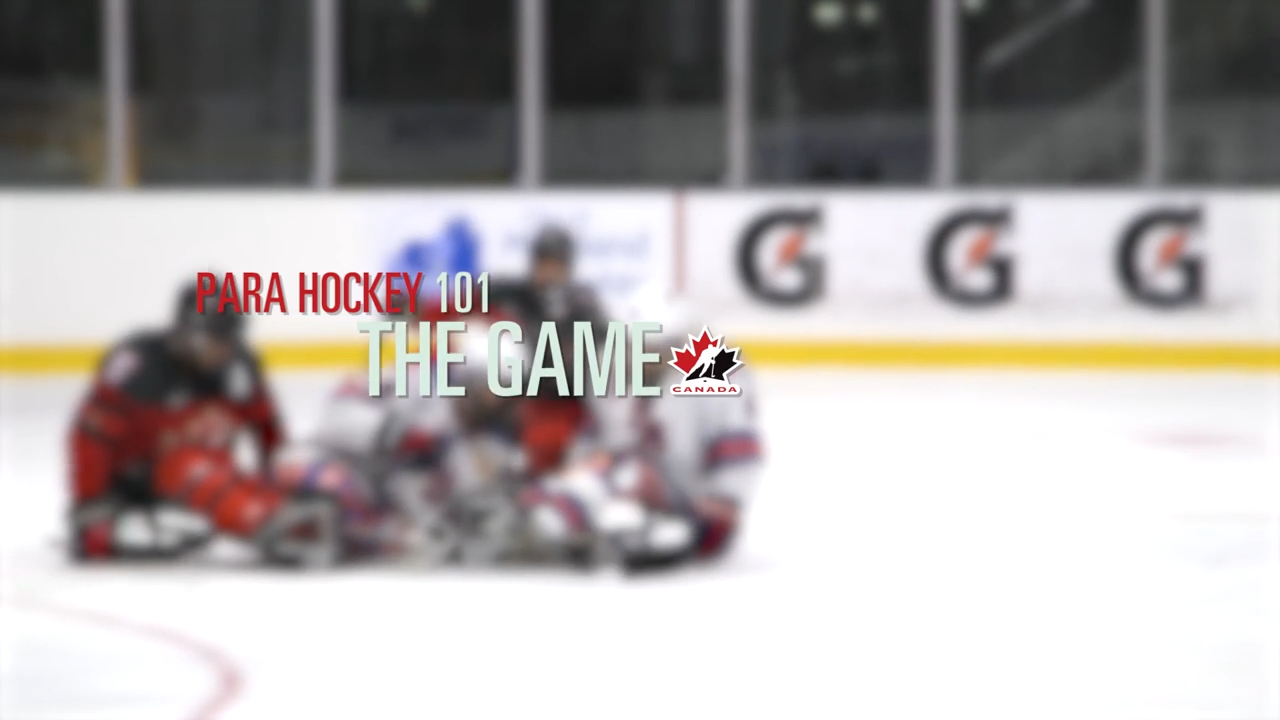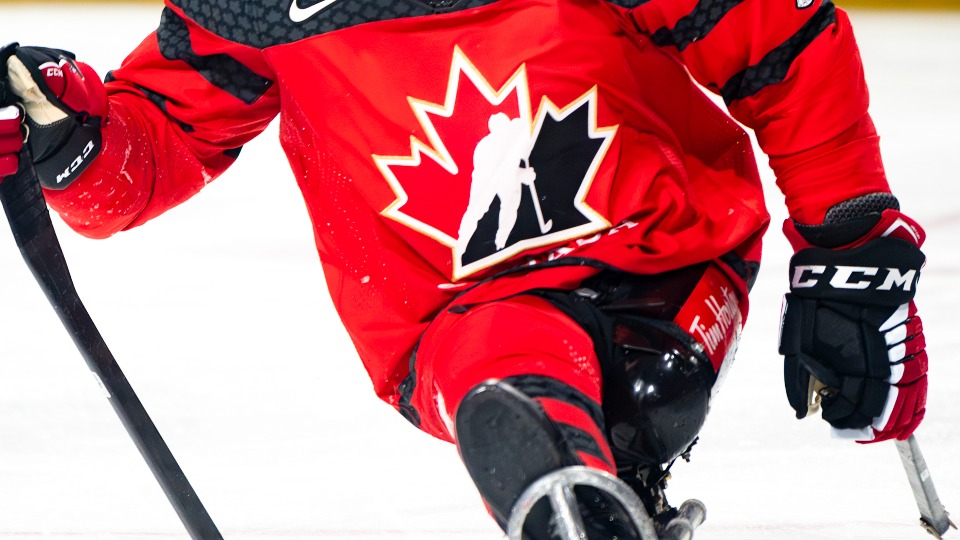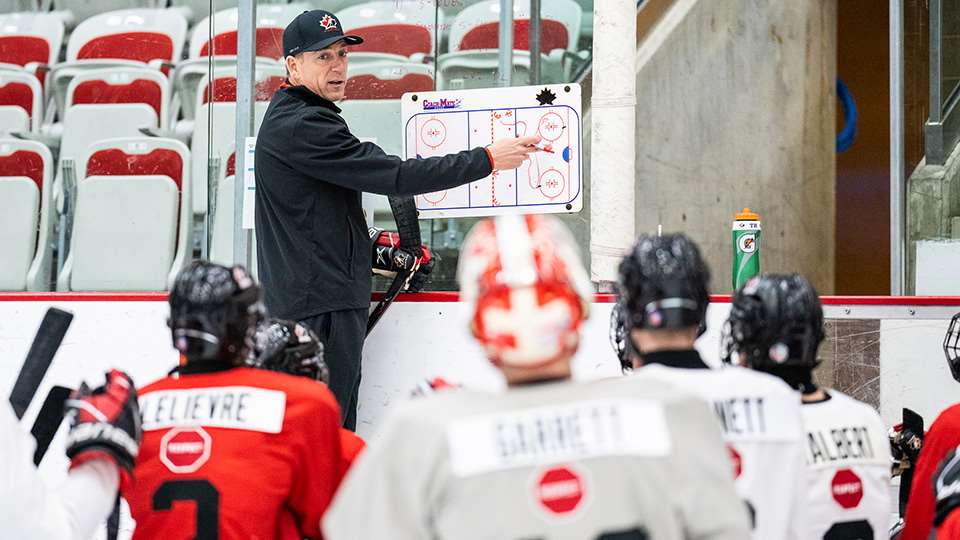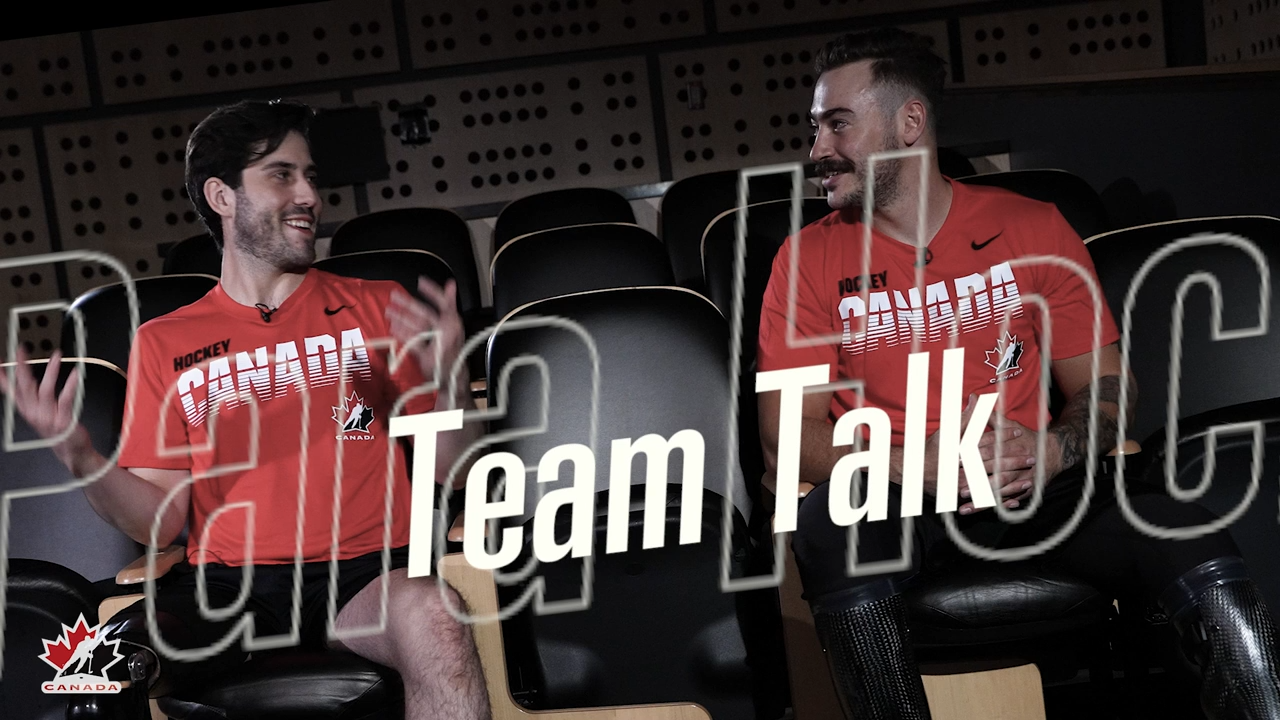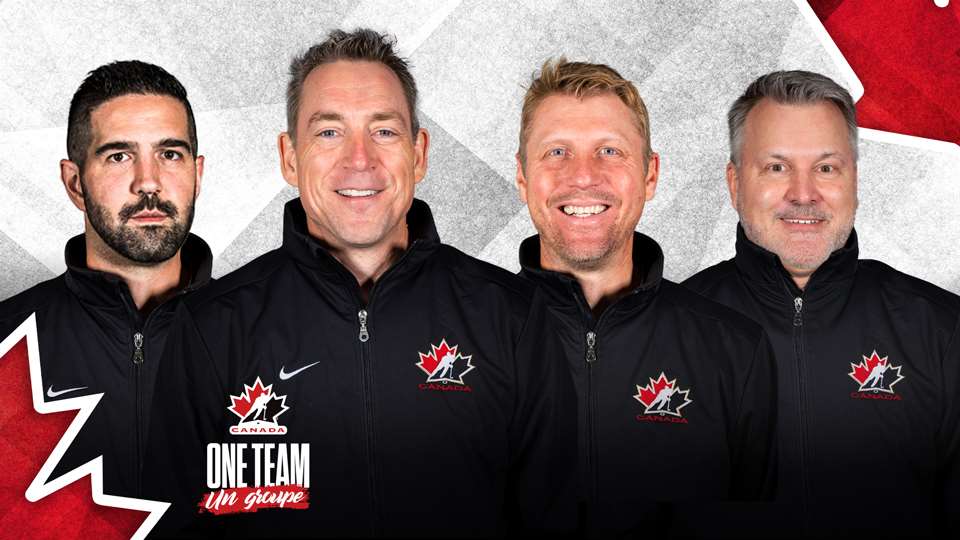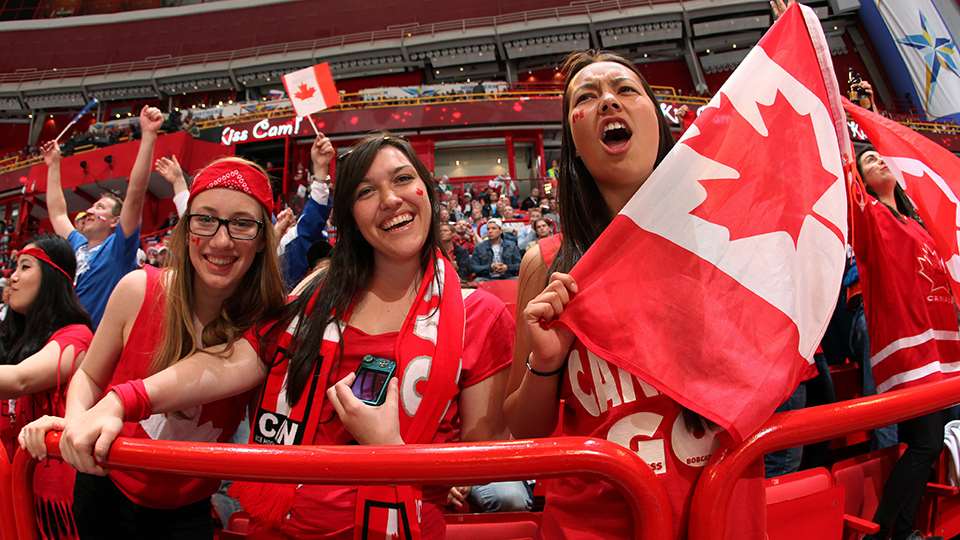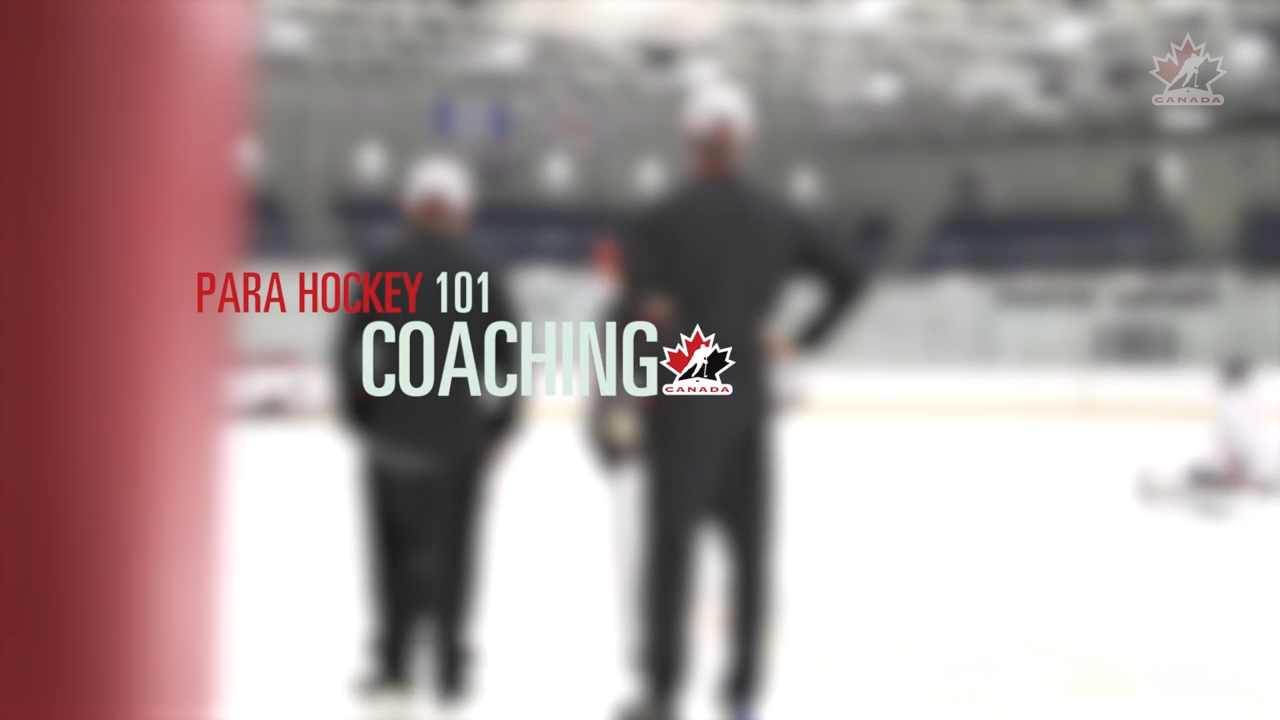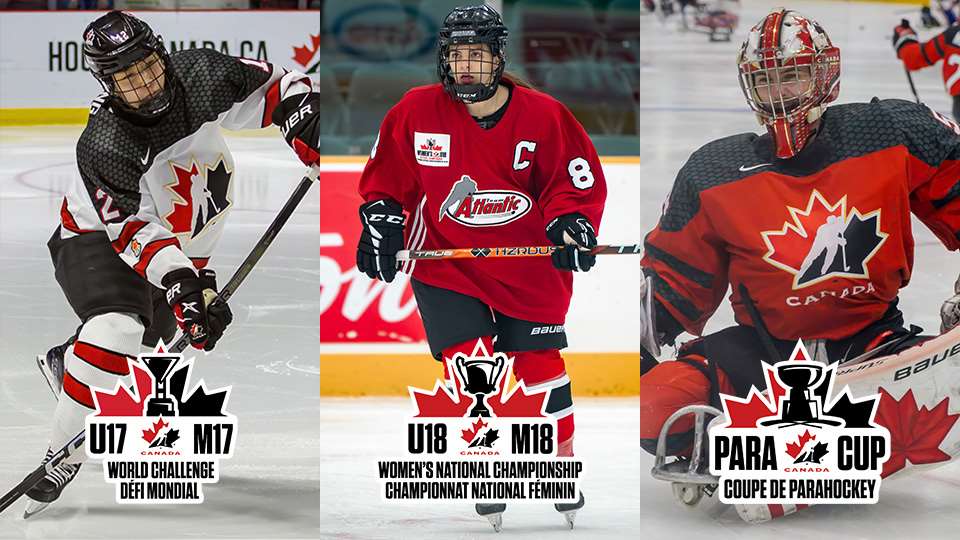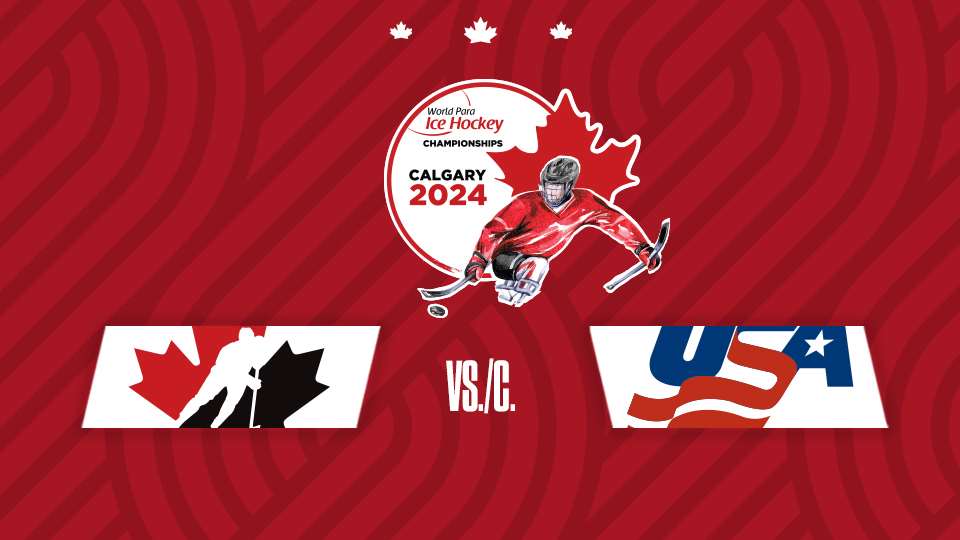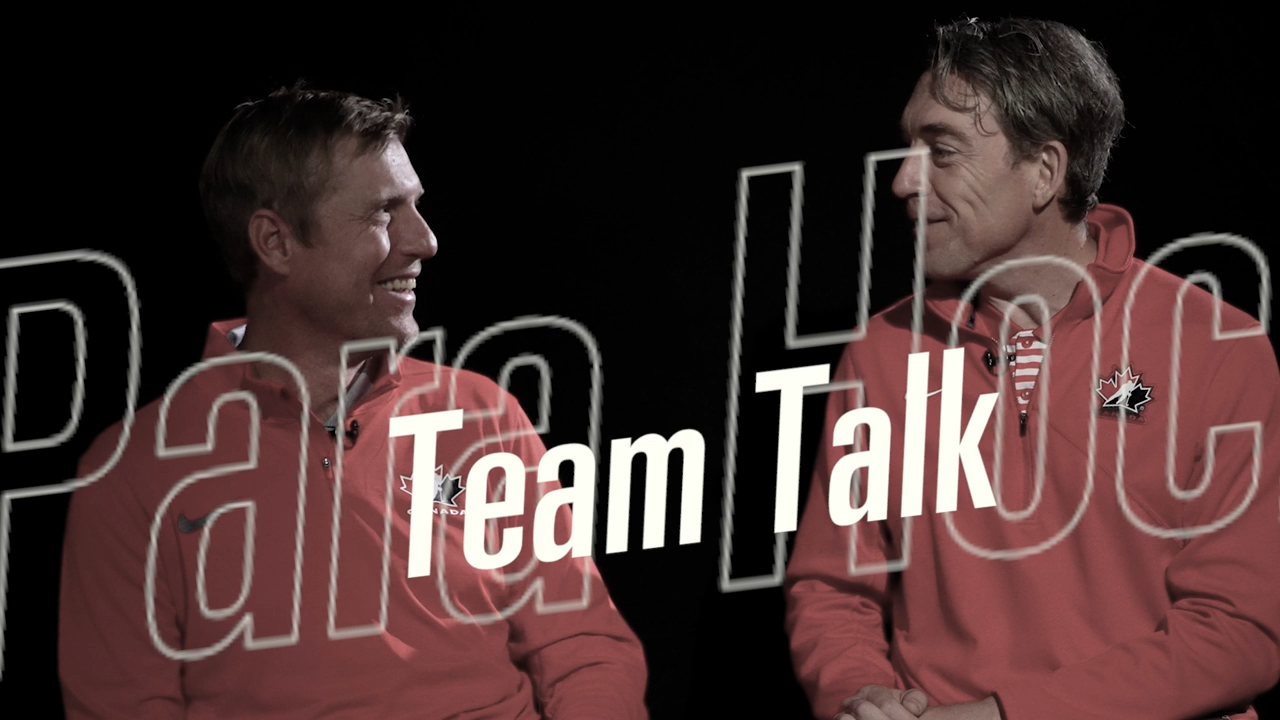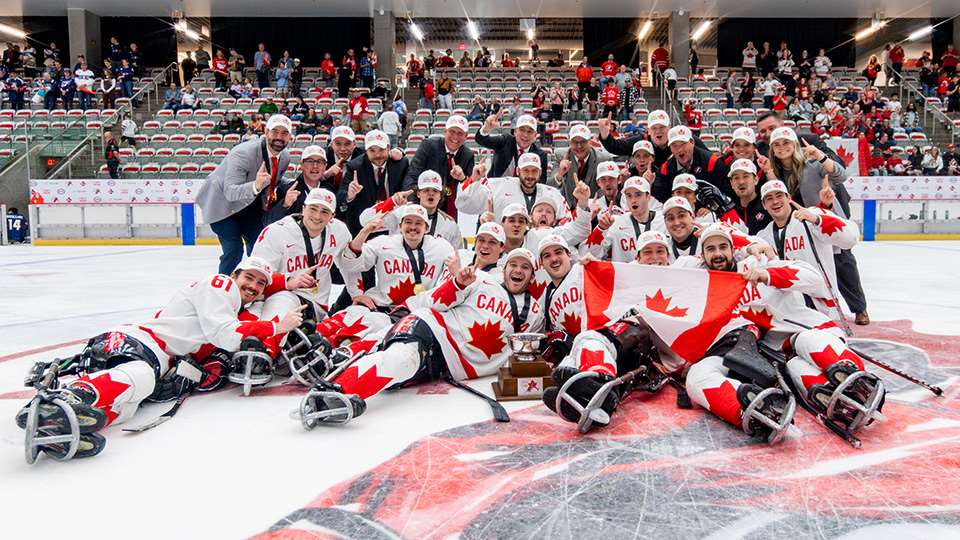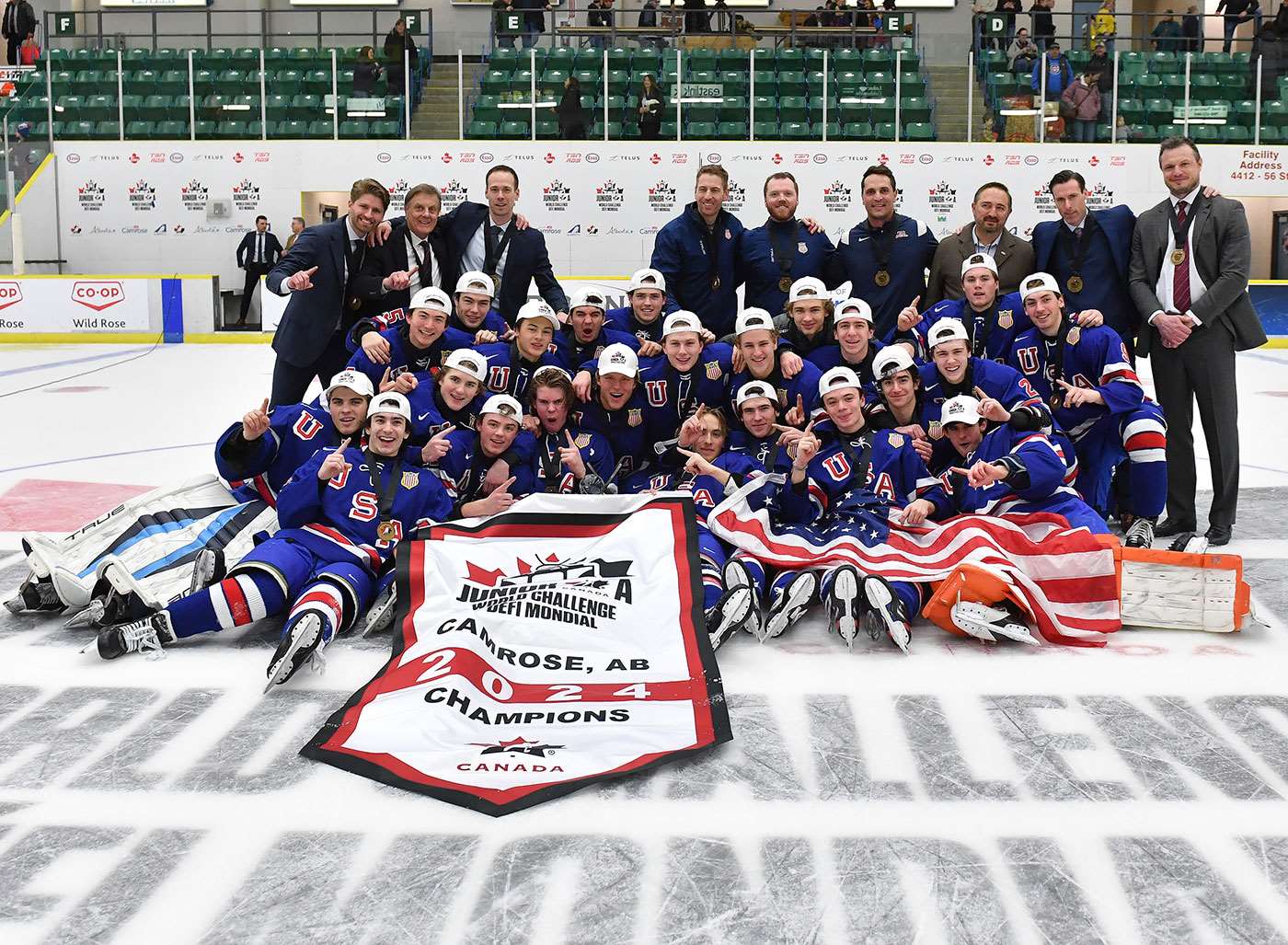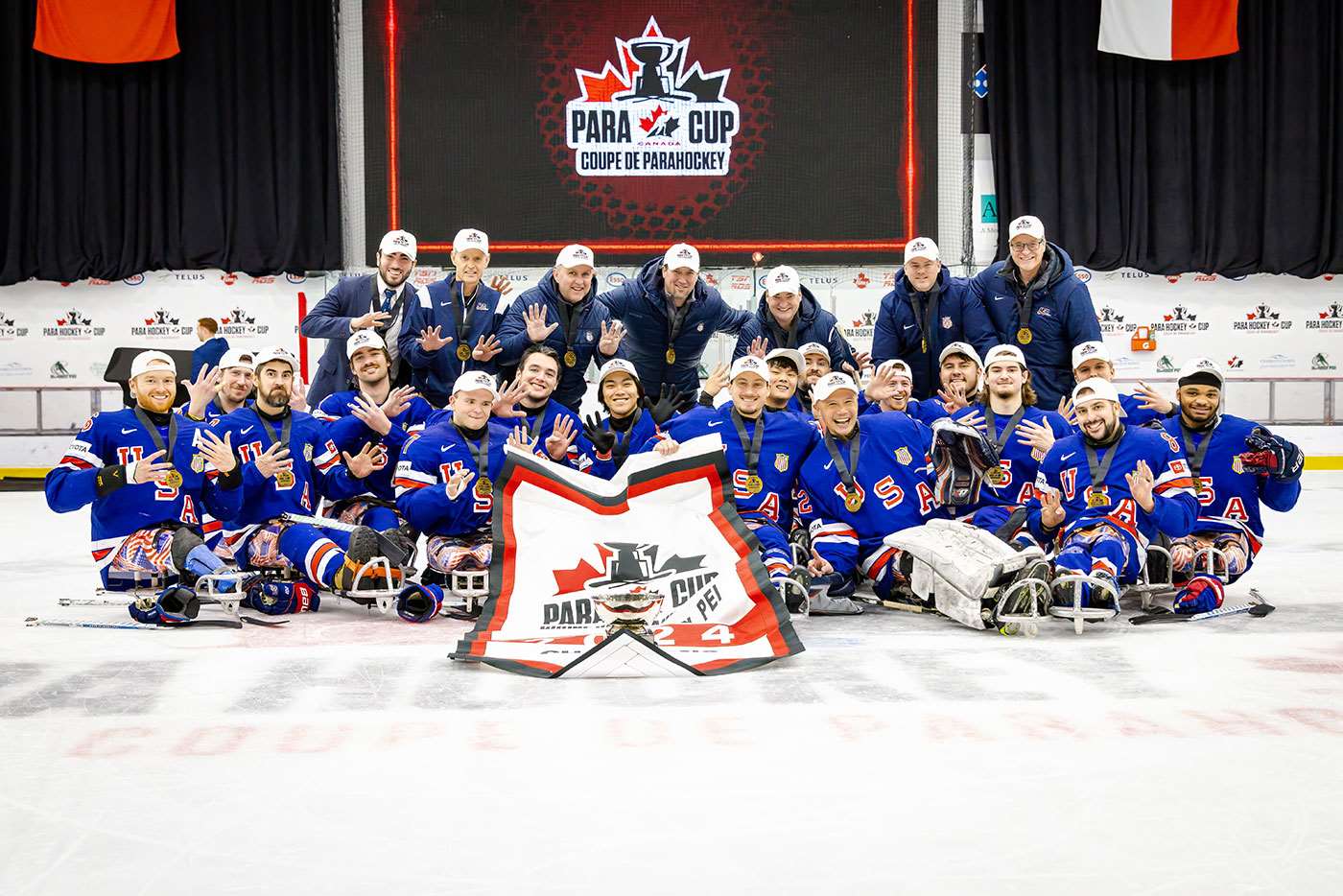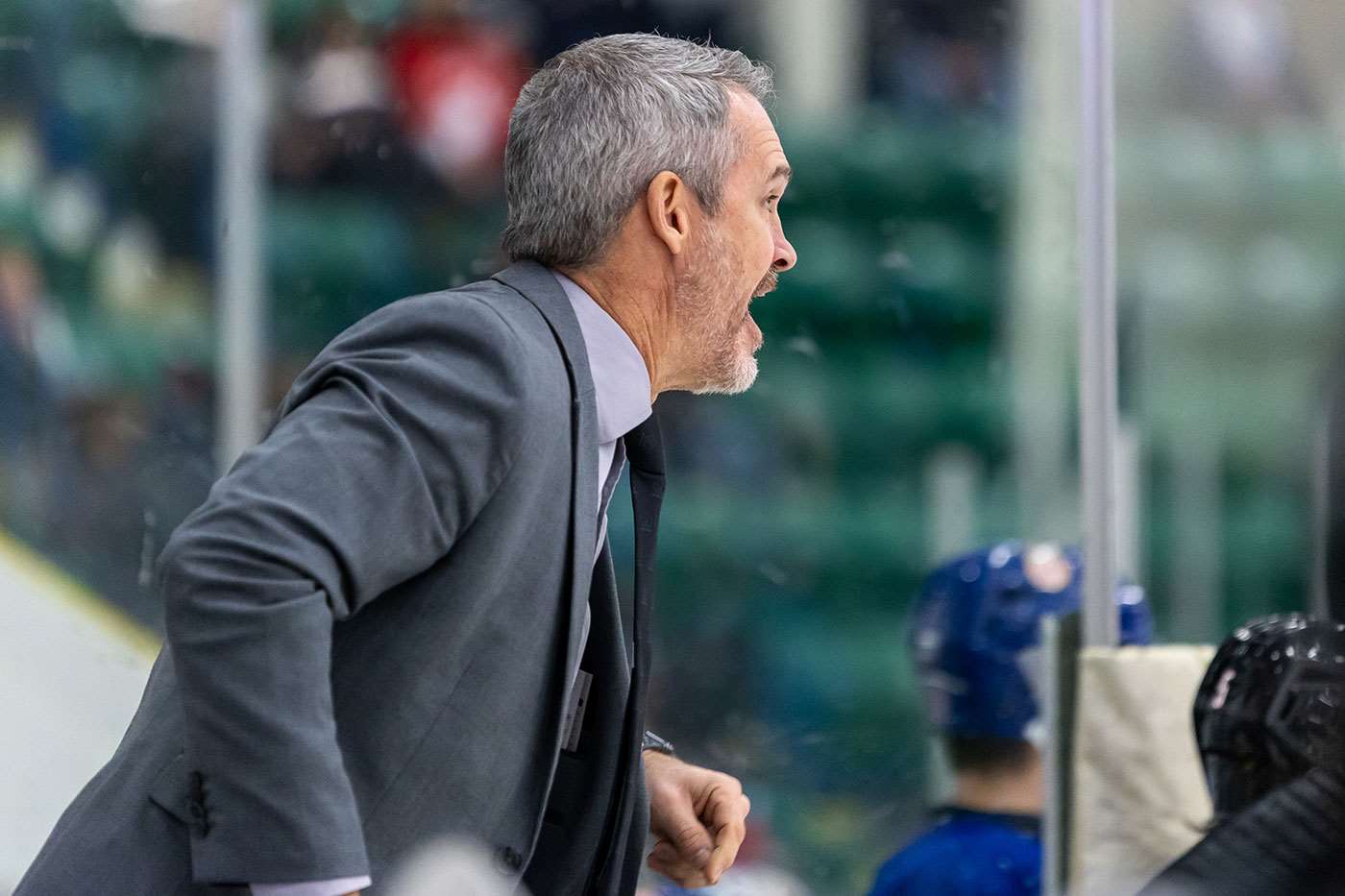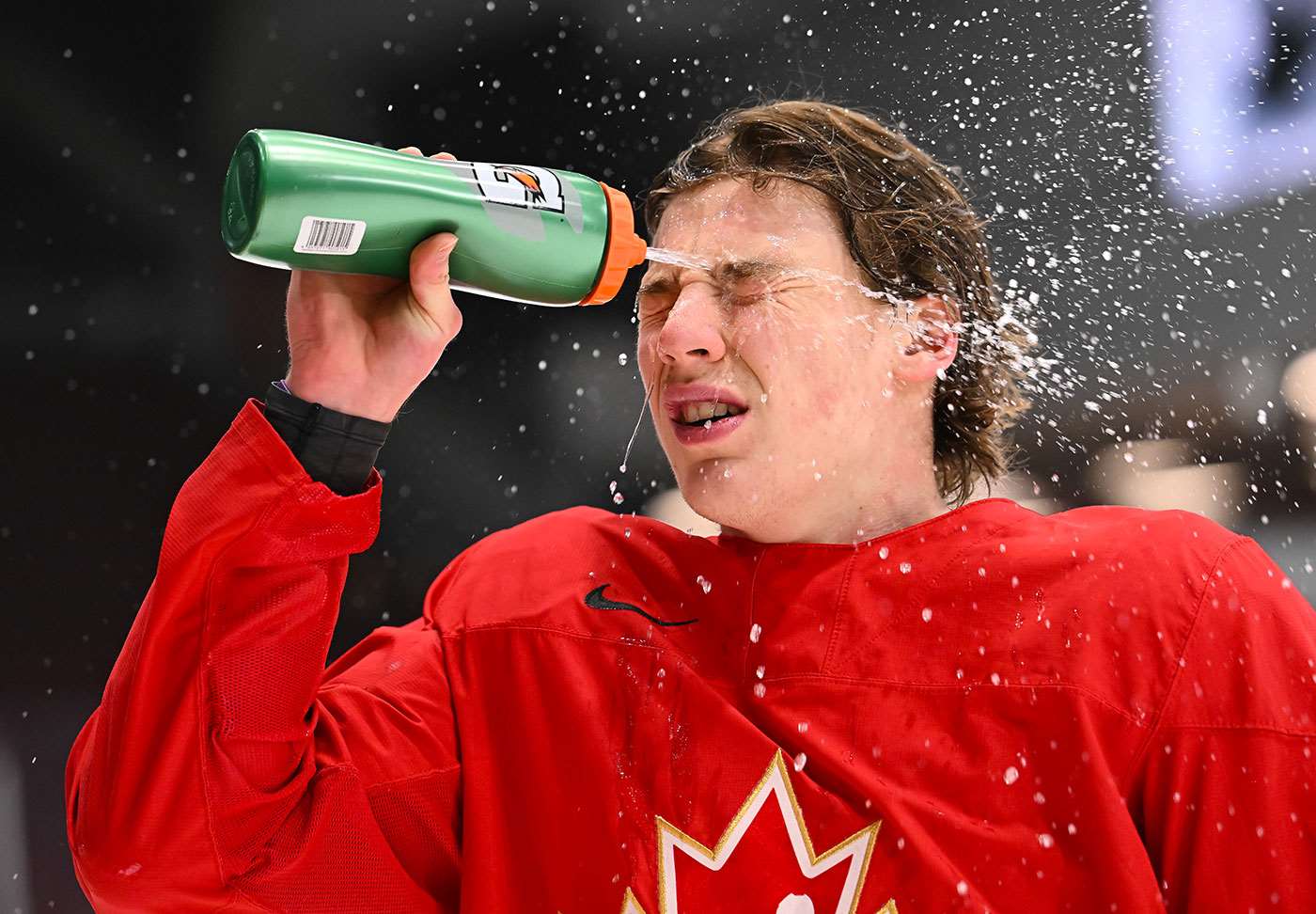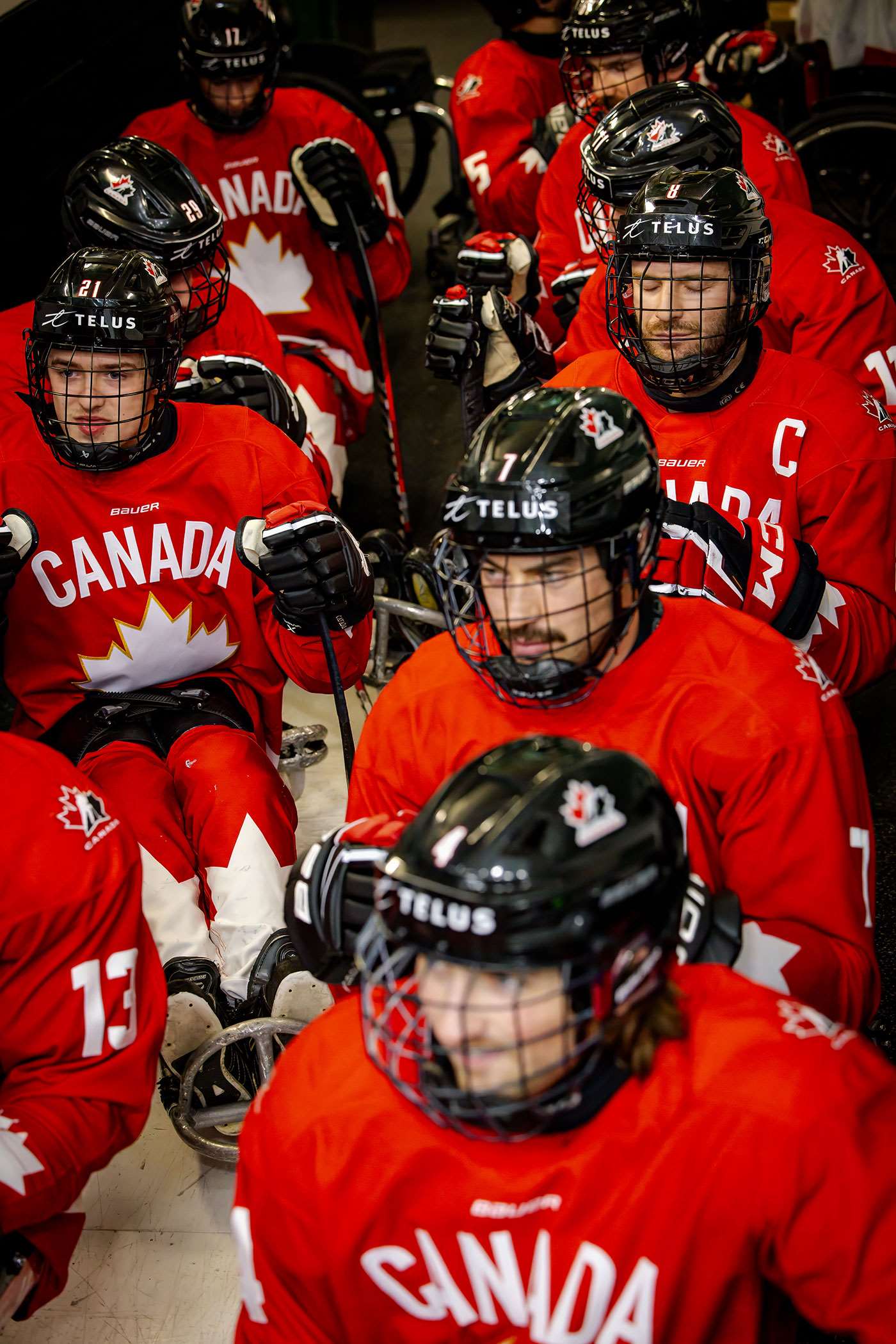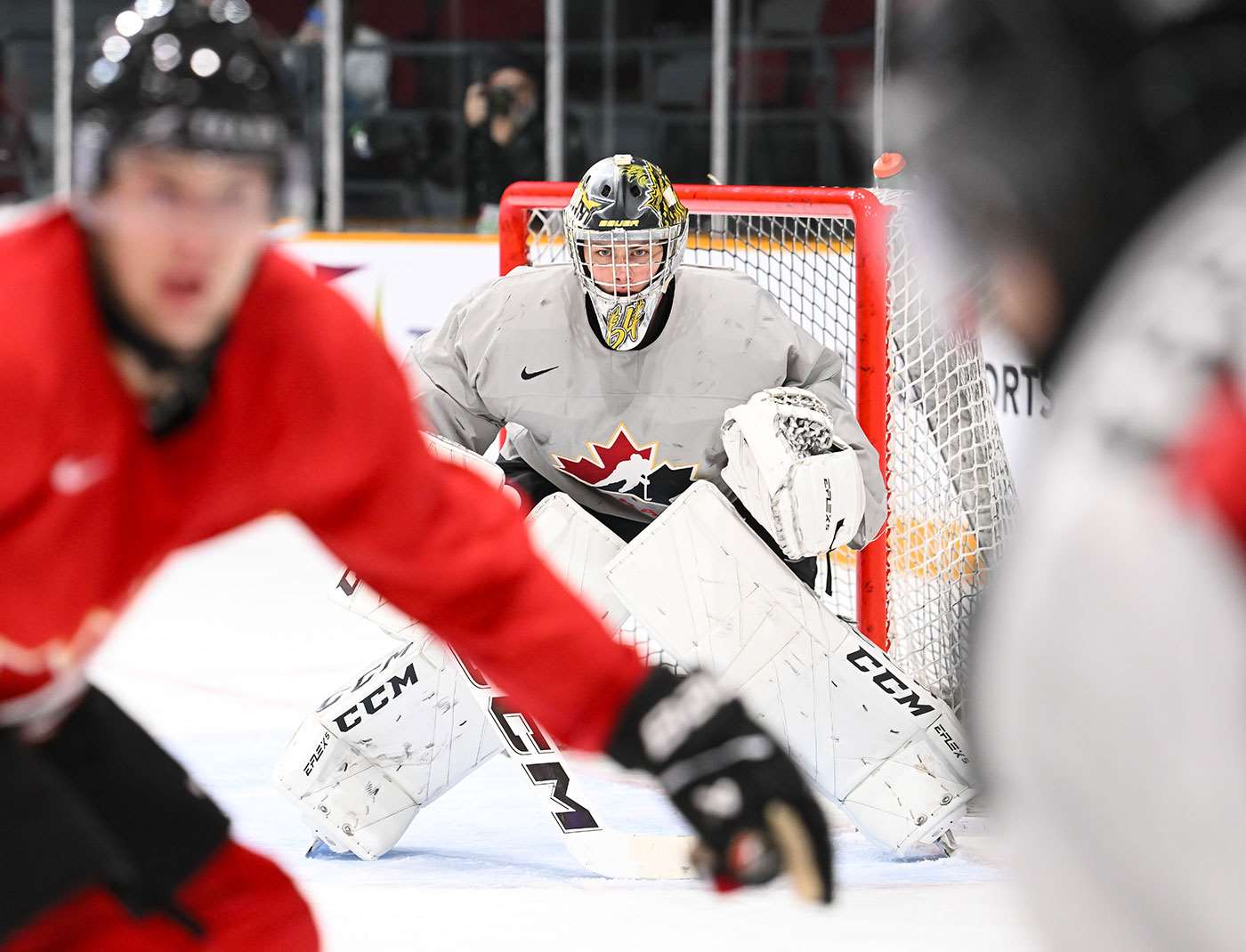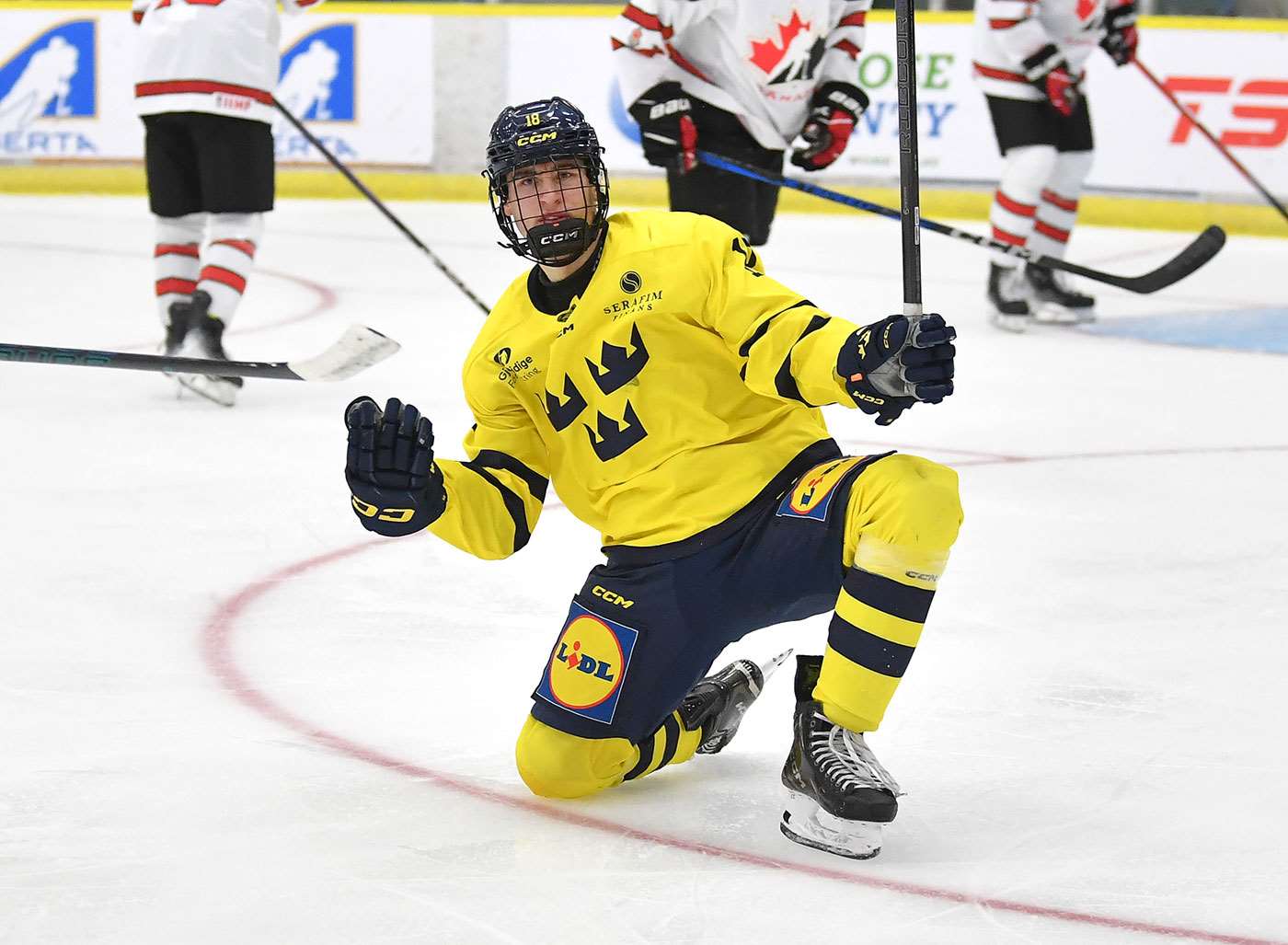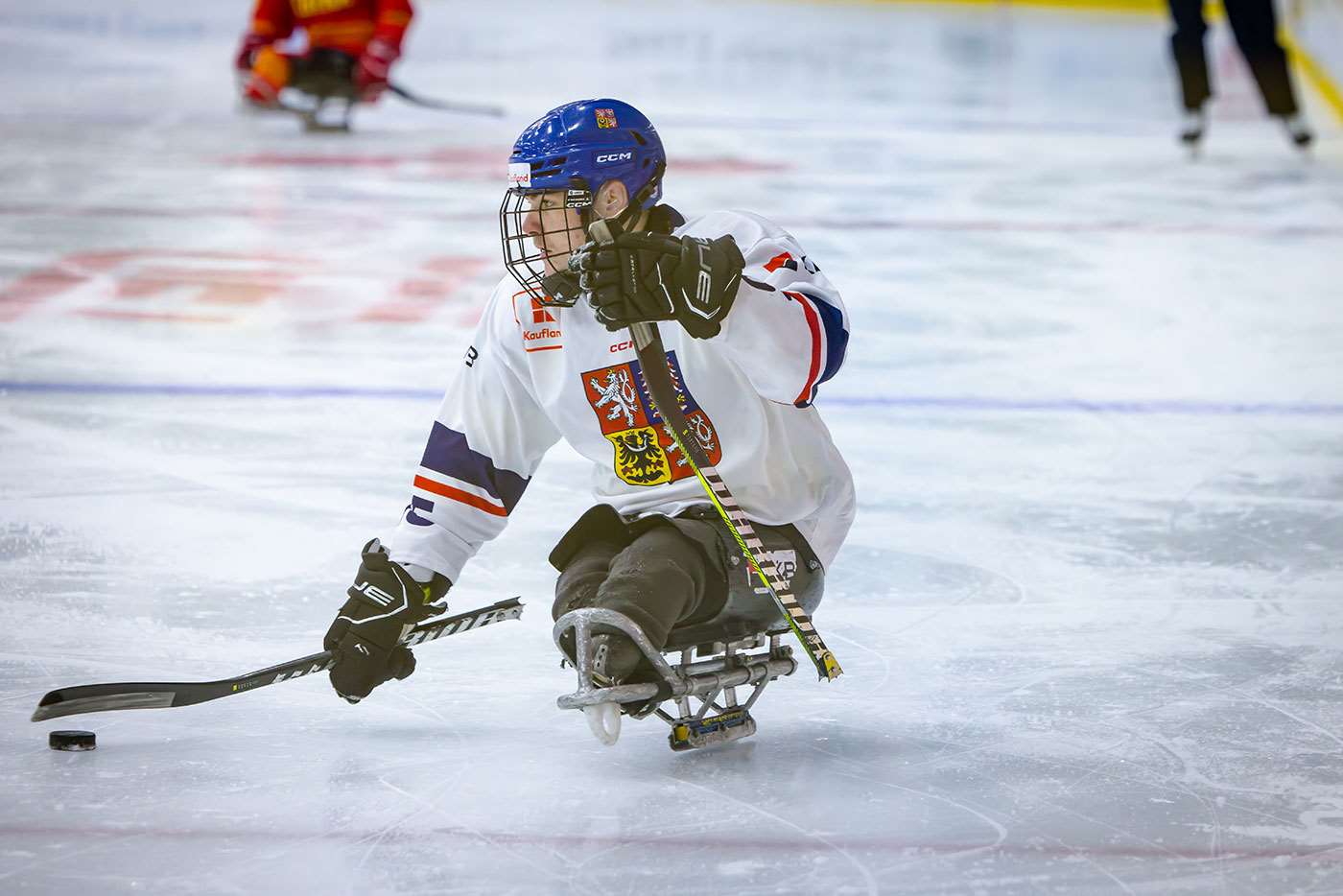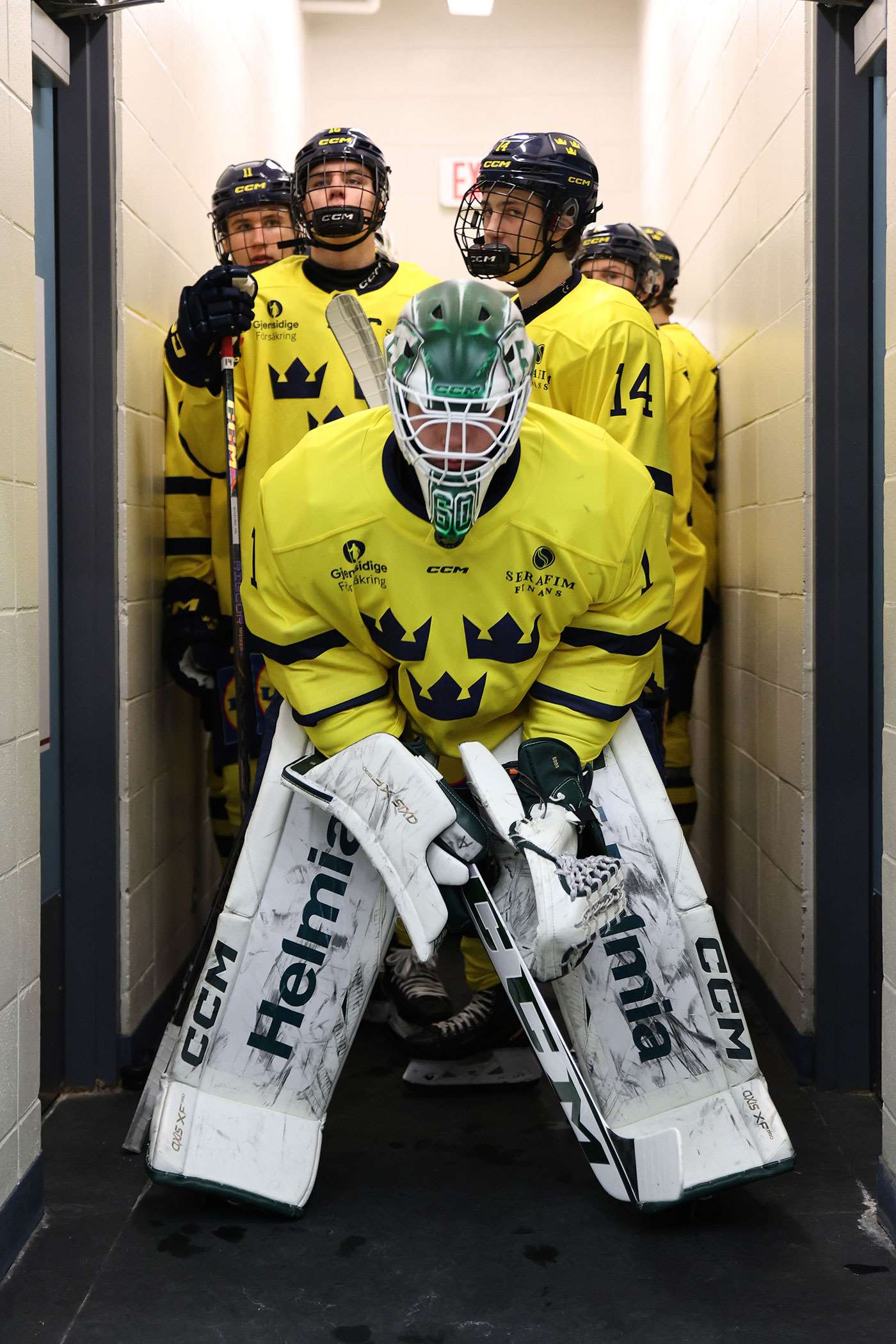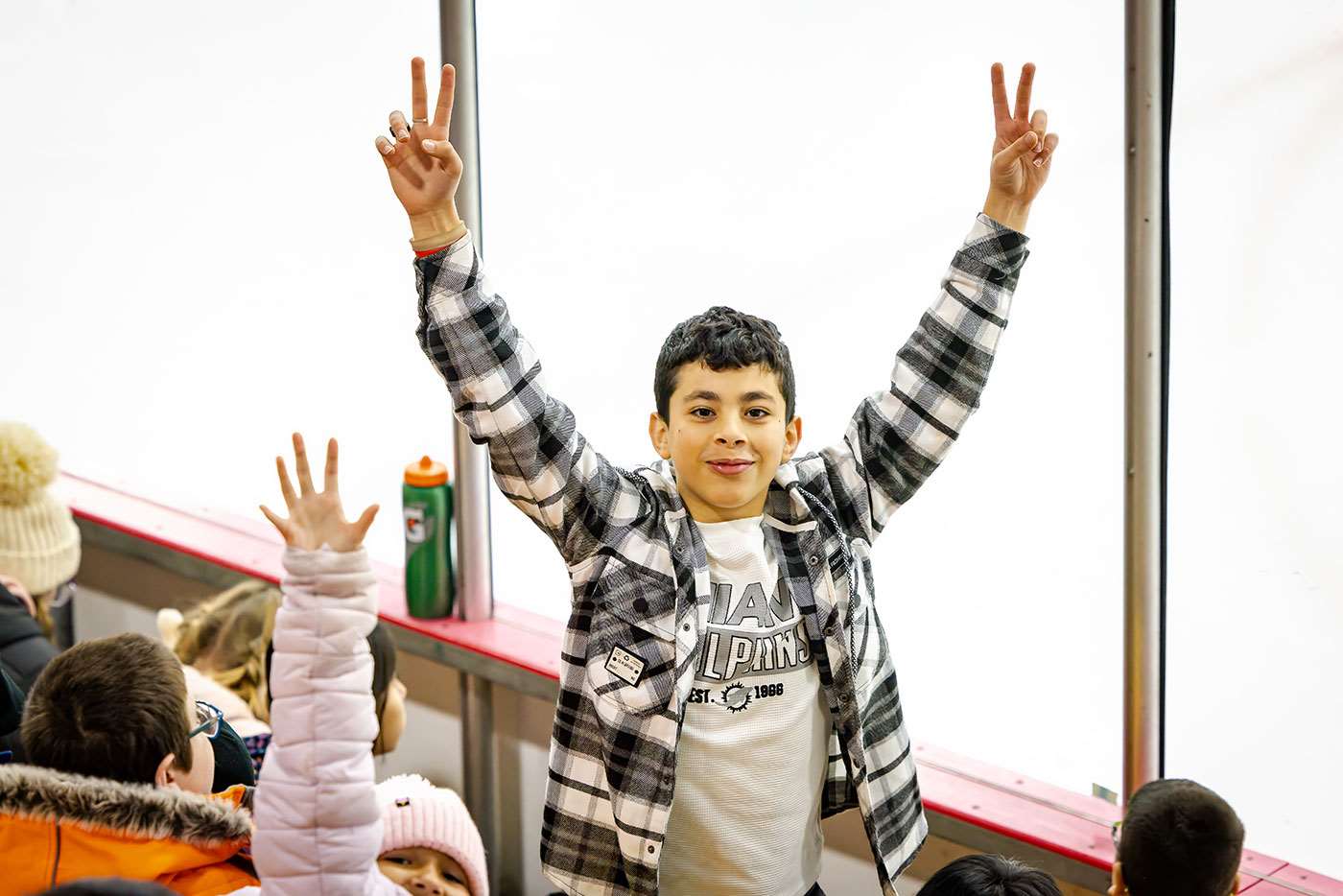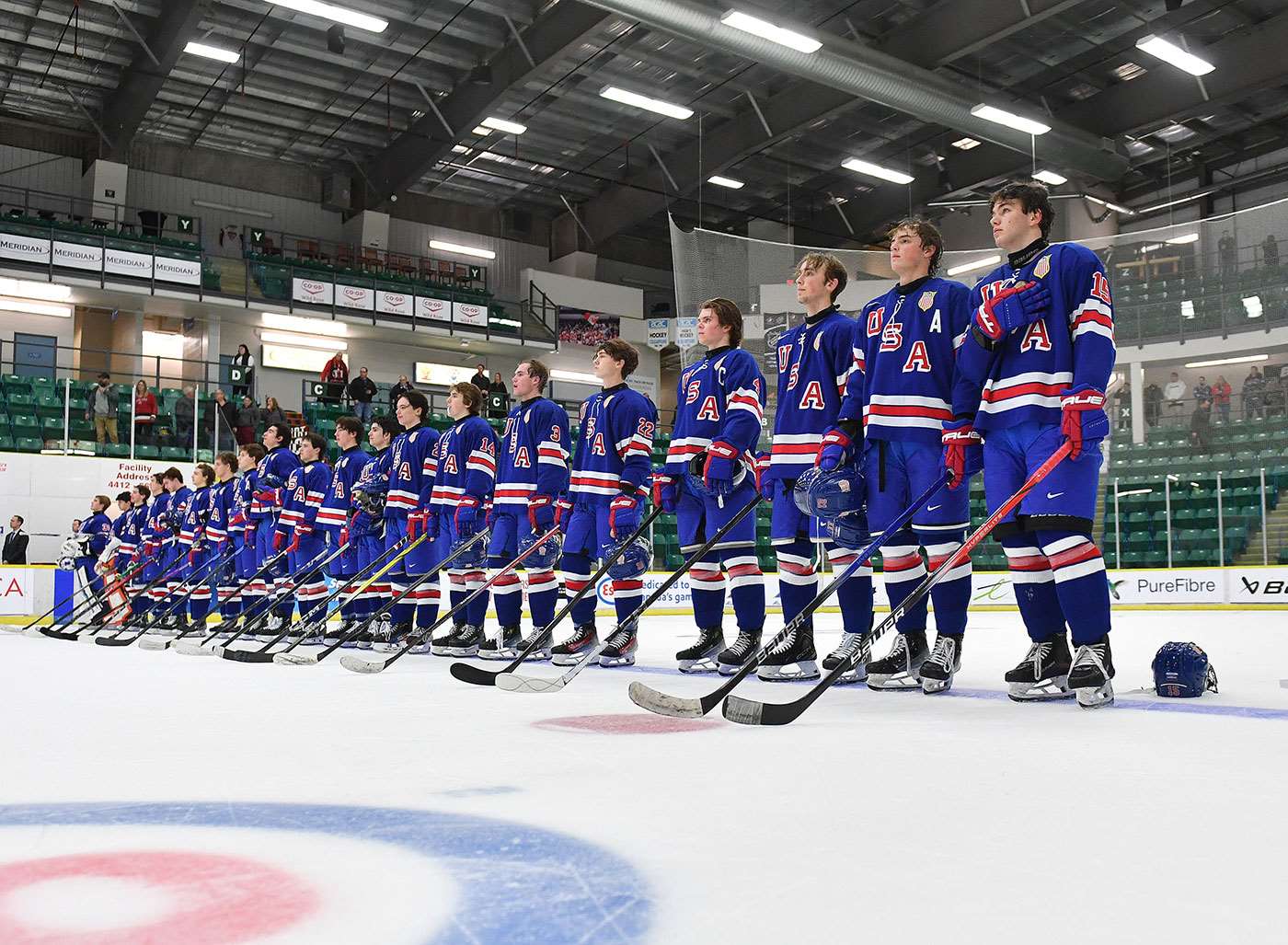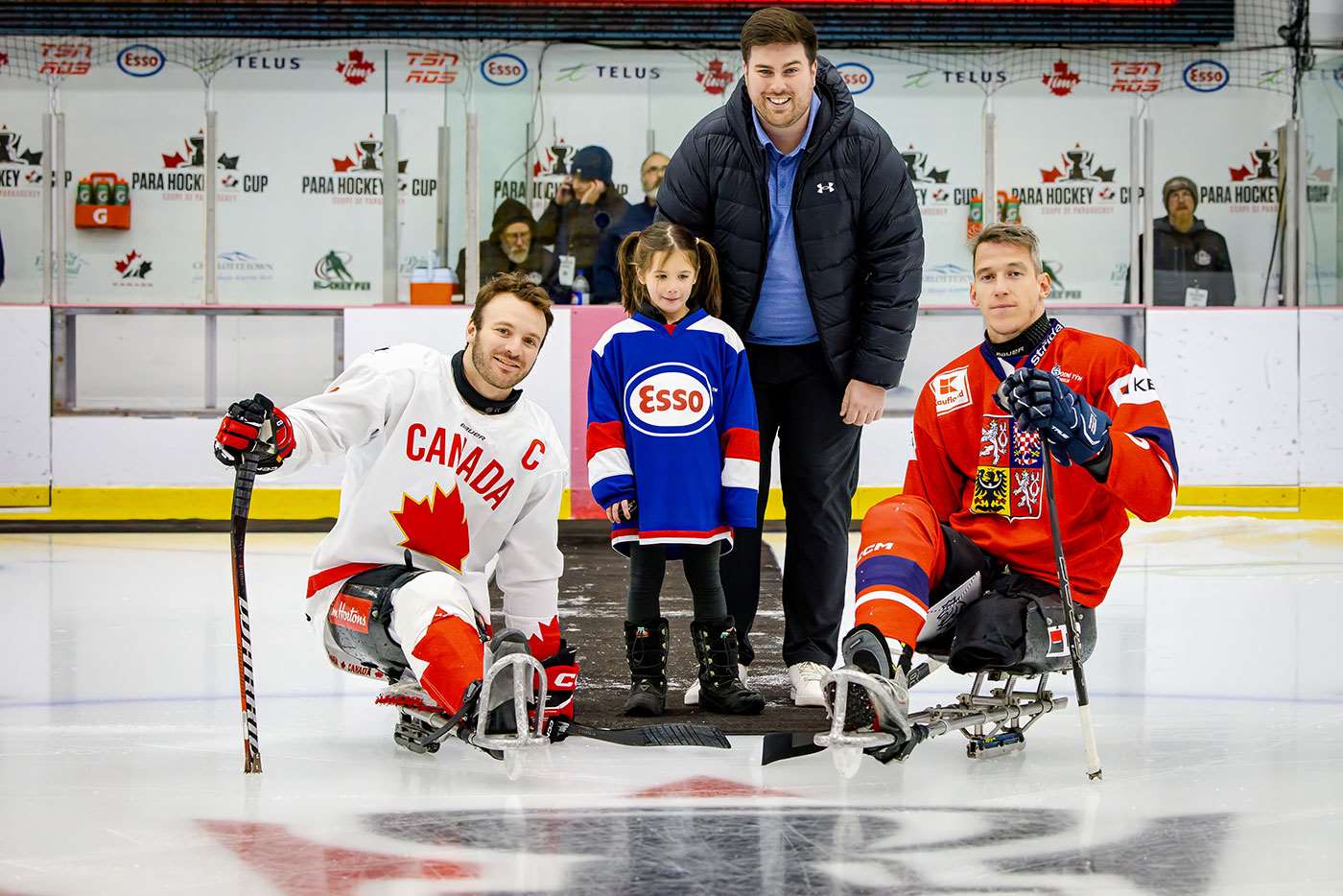
Schedule
Team Canada (Men)
IIHF World Junior Championship | Dec. 26, 2024-Jan. 5, 2025
Spengler Cup | Dec. 26-31, 2024
4 Nations Face-Off | Feb 12-20, 2025
IIHF U18 World Championship | April 23-May 3, 2025
IIHF World Championship | May 9-25, 2025
U17 World Challenge | Nov. 3-9, 2024
Hlinka Gretzky Cup | Aug. 5-10, 2024
Junior A World Challenge | Dec. 9-15, 2024
National Junior Team vs. USPORTS | Dec 12-13, 2024
Search
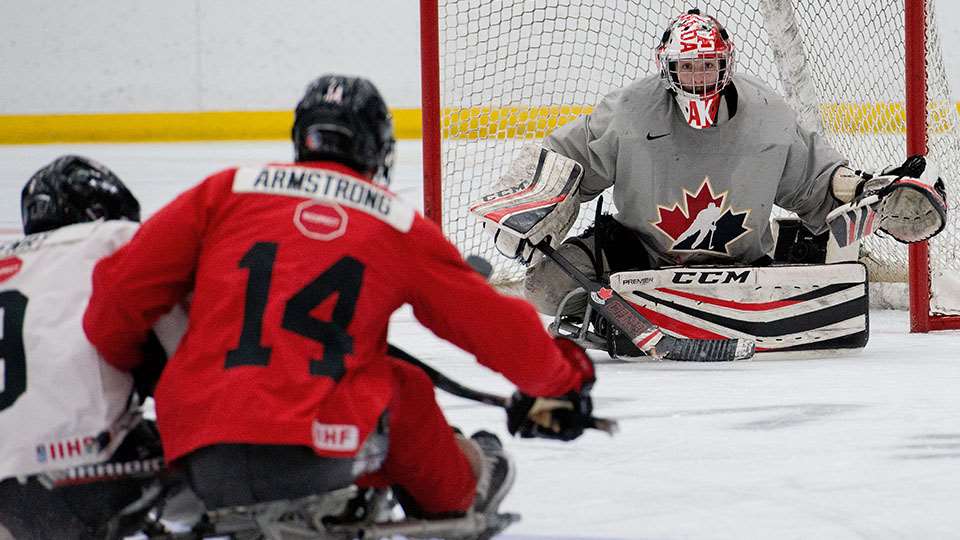
Finding a way to play
Despite being together just 11 days in the last 16 months, Canada’s National Para Hockey Team feels closer than ever in pursuit of a world title

For just the second time in 16 months, Tyler McGregor and his Team Canada teammates are back together.
Canada’s National Para Hockey Team arrived in the Czech Republic this week as it prepares for the 2021 IPC World Para Hockey Championship, which begins on June 19 in Ostrava.
“It has been so exciting to finally get here and see everyone – on and off the ice – because despite the circumstances, we look like a better team on the ice and feel like a closer team off the ice,” says McGregor, who serves as Team Canada captain.
The Forest, Ont., product, like his teammates, spent much of the past year and a half in isolation.
When the country went into lockdown in March 2020, the team was just a month removed from a two-game series with the United States in Elmira, Ont. McGregor went to the East Coast to visit his girlfriend and stayed for three months before heading back home to Ontario to continue training. He spent the last month in Calgary before heading over to Europe.
Throughout the pandemic, some players were able to access ice and training facilities, and the team did have one opportunity to gather in a formal setting, with 12 players – including McGregor – attending training camp in Calgary in late January.
“Without the opportunity to train, I know I would have struggled mentally to endure the last 15 months,” McGregor says. “It was so important to just maintain a routine and some level of normalcy.”
As the pandemic continued, the team needed to adapt. There were virtual calls weekly, sometimes multiple times a week. The leadership group met once a week to talk about team culture, the team held a group call to discuss video clips, plays and systems, and a team-building call or fitness challenge to help the players bond.
Like McGregor, Liam Hickey was able to access ice in his home province of Newfoundland and Labrador, as well as many home workouts.
“It was a cool experience as a team. We’ve bonded more over the last year and a half because of the situation we are in,” he says. “We just found a way to stay connected and reach out to the guys to just check in. We bonded over the fact that we were all facing the same challenge.”
Like many Canadians, the mental health aspect of lockdowns was a struggle. The players used their time on calls to openly discuss what was happening, build relationships and learn from each other.
“Our culture is set on integrity, trust and honesty. Part of what comes from that is being open and honest with each other. A lot of the discussions we’ve had were about those struggles and the challenges associated with the pandemic and being isolated,” says McGregor. “This isn’t something you see in sports, and particularly in men’s sports, but at the end of the day, [the pandemic] allowed us to grow closer and create a stronger bond. I think that will translate to our on-ice performance.”
Hickey believes spending that much time together, even virtually, will be a strength on the ice because the team knows the chemistry will be there. It also used the different setbacks to focus on individual skill development and use that as motivation when it finally was able to play again.
“This is the first time we’ve been together on the ice as a full team in almost two years,” says Hickey. “We have looked at every setback as an opportunity to train harder. That has how we have looked at this entire experience and now that we have this opportunity to play again, we want to make the most of it.”
For head coach Ken Babey, this has been the most challenging experience in his career.
“It’s been very unique and different,” he says. “But to be together now, the guys are excited and glad to be back, and they are motivated to play.”
Team Canada came to Ostrava a week early to get settled, practice and play a few pre-tournament games before it takes on the United States, South Korea and the host Czechs in the preliminary round.
“We have done the best we can do in our situation, but there is nothing like being on the ice together, talking with the players and directing them on corrections, or even adding in progressions on drills and systems,” says Babey. “It was one of the best first practices we’ve had together when we’ve travelled overseas. Despite us suffering from some jet lag, the spirits are high, they seem motivated and we just need to get the rust off our hockey skills.”
There will be some fans in attendance and McGregor says the team is looking forward to seeing and hearing people in the stands again.
“For most of us, we’ve played in empty arenas before around the world, but from my perspective, it will be so refreshing to see fans in the building,” he says. “It is just being assured that the world is finally healing.”
Canada finished with the silver medal at the 2019 para worlds in Ostrava, coming within four minutes of gold before falling to the U.S. in overtime. It will look to avenge that loss and earn a fifth world title this year.
“[The] gold medal is what we go for, always. Hockey Canada as an organization doesn’t want to settle for anything less and we don’t to either,” says Hickey. “That has been the main goal and something for all of us to focus on throughout the pandemic.”
For more information: |
- <
- >

















